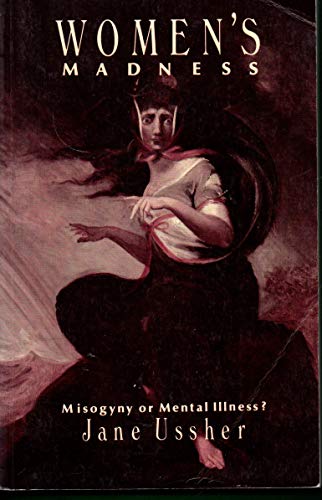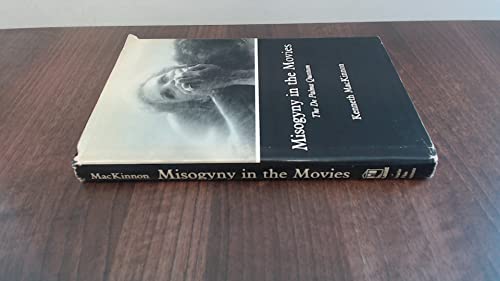
Are you interested in this convocation presentation?
We have similar books available for check out
in front of the Circulation Desk!
You can also check out her website linked here.
 Women's Madness by
Women's Madness by
Call Number: 616.89 U87w
In this exhaustive and wide-ranging history of the diagnosis and treatment of women with mental illness raises the question: Does female "madness" in reality represent a sane response to a society designed to keep women in check? Ussher's own mother was diagnosed as mentally ill during the author's adolescence. In seeking to understand her mother's experience, including her "cure" via electro-convulsive therapy and drugs, Ussher takes a historical look at the treatment--more often torture--of women who were feared because they were different, and who were thus labeled mad. The author even goes so far as to suggest that premenstrual syndrome and postnatal depression are unsustainable theories that keep women at the mercy of their biological selves, mere extensions of the Victorian school of thought that labeled women the "weaker sex." As an academic text, Ussher's deconstruction of female madness and its treatment is surefooted and thorough; as a historical recounting of women's experiences with mental illness, it is radicalizing and sobering.
 Misogyny in the Movies by
Misogyny in the Movies by
Call Number: 791.4302 M158m
Call Number: 809.293 S779
The essayists in this book explore not only the rage of modern dramatists' misogynistic characters but also the rage of their intended victims. The essays point out how even some who critique misogyny are caught in its web, others providing a critique that is liberating for themselves and potentially liberating for their audience.
Call Number: 618.2 D681w
"Scholarly, copiously footnoted study... Donegan... considers the complex male-female relationships involved, showing how closely the history of midwifery is connected to the history of feminism."- Library Journal
Call Number: 305.42 M282d 2018
Misogyny is a hot topic, yet it's often misunderstood. What is misogyny, exactly? Who deserves to be called a misogynist? How does misogyny contrast with sexism, and why is it prone to persist - or increase - even when sexist gender roles are waning? This book is an exploration of misogyny in public life and politics by the moral philosopher and writer Kate Manne. It argues that misogyny should not be understood primarily in terms of the hatred or hostility some men feel toward all or most women. Rather, it's primarily about controlling, policing, punishing, and exiling the "bad" women who challenge male dominance. And it's compatible with rewarding "the good ones," and singling out other women to serve as warnings to those who are out of order. It's also common for women to serve as scapegoats, be burned as witches, and treated as pariahs. Manne examines recent and current events such as the Isla Vista killings by Elliot Rodger, the case of the convicted serial rapist Daniel Holtzclaw, who preyed on African-American women as a police officer in Oklahoma City, Rush Limbaugh's diatribe against Sandra Fluke, and the "misogyny speech" of Julia Gillard, then Prime Minister of Australia, which went viral on YouTube. The book shows how these events, among others, set the stage for the 2016 US presidential election. Not only was the misogyny leveled against Hillary Clinton predictable in both quantity and quality, Manne argues it was predictable that many people would be prepared to forgive and forget regarding Donald Trump's history of sexual assault and harassment. For this, Manne argues, is misogyny's oft-overlooked and equally pernicious underbelly: exonerating or showing "himpathy" for the comparatively privileged men who dominate, threaten, and silence women.
Call Number: 305.4209 B215e 2018
In Empowered Sarah Banet-Weiser examines the deeply entwined relationship between popular feminism and popular misogyny as it plays out in advertising, online and multimedia platforms, and nonprofit and commercial campaigns. Examining feminist discourses that emphasize self-confidence, body positivity, and individual achievement alongside violent misogynist phenomena such as revenge porn, toxic geek masculinity, and men's rights movements, Banet-Weiser traces how popular feminism and popular misogyny are co-constituted. From Black Girls Code and the Always #LikeAGirl campaign to GamerGate and the 2016 presidential election, Banet-Weiser shows how popular feminism is met with a misogynistic backlash of mass harassment, assault, and institutional neglect. In so doing, she contends that popular feminism's problematic commitment to visibility limits its potential and collective power.
Call Number: D138vo 2018 (Fiction 3rd floor)
Set in a United States in which half the population has been silenced, Vox is the harrowing, unforgettable story of what one woman will do to protect herself and her daughter. On the day the government decrees that women are no longer allowed more than one hundred words per day, Dr. Jean McClellan is in denial. This can't happen here. Not in America. Not to her. Soon women are not permitted to hold jobs. Girls are not taught to read or write. Females no longer have a voice. Before, the average person spoke sixteen thousand words each day, but now women have only one hundred to make themselves heard. For herself, her daughter, and every woman silenced, Jean will reclaim her voice. This is just the beginning...not the end.
Commenting on blog posts requires an account.
Login is required to interact with this comment. Please and try again.
If you do not have an account, Register Now.